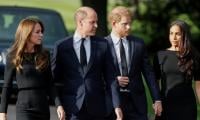Leading rights activists on Thursday criticised the parliamentary committee for not considering their suggestions before approving the draft bill on electoral reforms.
The Parliamentary Committee on Electoral Reforms (PCER), headed by Minister of Finance Ishaq Dar, had approved the draft on Wednesday and it is now likely to be signed next week. The civil society had called for including provisions that would ensure adequate representation of workers, marginalised communities, non-Muslims and women.
Representing their respective organisations at a press conference, the civil society activists observed that the committee took 33 months to prepare the legislation but, unfortunately, it would not ease the access of oppressed communities and gender to all stages of the electoral process.
Activists who spoke at the press conference included Karamat Ali of Pakistan Institute of Labour Education and Research (Piler), Asad Iqbal Butt of the Human Rights Commission of Pakistan, Habibuddin Junaidi of Sindh Labour Solidarity Committee, Mahnaz Rahman of Aurat Foundation, Elahi Bakhsh Baloch of the Strengthening Participatory Organisation, Saeed Baloch of Pakistan Fisherfolk Forum and Farhat Perveen of NOW Communities.
“We are disappointed after reading the news about the passage of electoral reforms law being approved without including our suggestions,” Ali said. The present law is an attempt to maintain status quo, he added. “Under the current electoral system workers cannot reach the parliament.”
Members of the civil society had sent a number of recommendations to the PCER in 2014 in the form a memorandum. “But sadly the committee did not take a single point into consideration while drafting the bill,” the Piler’s executive director stated. Criticising the Opposition lawmakers, he said the parties which raise a hue and cry against the federal government in TV talks shows were also in agreement with the committee that approved the draft.
Ali said the parliament ought to be constituted as such that ensured fair and adequate representation to all the people living in it. Fair and adequate representation must be guaranteed to the marginalised and disadvantaged sections and groups of the country, he added.
The rights’ activist observed that the number of seats in the National Assembly – 342 - were not in proportion with the country’s population. “We had recommended that the total number of seats should be increased to at least 500 and in same proportion, the number of seats in the provincial assemblies should also be increased.”
The speakers observed that constituency-based elections could be conducted on 50 percent of the seats to give representation to the elite class as they alone cannot afford to contest on the seats.
To facilitate participation of women, labours, peasants and minorities, election on the remaining 50 percent of the seats can be conducted on the basis of proportional representation and/or party lists. They also demanded to reserve 33 percent seats for workers and peasants and 33 percent for women.
Citing the example of Nepal, the activists observed that 50 percent of the country’s parliament comprises of lawmakers elected through general elections. All political parties have to nominate women who would fill the 33 percent seats reserved for women, while the remaining 50 seats are filled through proportional representation.
The civil society had also suggested disallowing one candidate to contest elections from multiple constituencies and that parties nominate candidates who reside in the constituency they are contesting elections from.
Currently, according to the activists, Punjab held majority of the seats in the national assembly owing to population-based elections in its constituencies, creating an imbalance of power at all levels.
“The percentage of seats for Punjab should be 45 and seats for Sindh and Balochistan should be increased by the same proportion,” an activist observed. He added that before the Partition, Muslims of Punjab, despite constituting 55 percent of the population, had voluntarily settled for 45 percent seats in the legislature to ensure representation of the Sikh and Hindu communities residing in the area. They did so to maintain inter-communal harmony in the province.
The activists complained that seats reserved for religious minorities in the parliament had not been increased in the past four decades. In 1970, the number of seats in the National Assembly were 145, they were raised to 210 in 2008 and to 342 in 2013; but the number of seats for non-Muslim communities still remains 10.
An aerial view of Karachi city. — AFP/FileCelebrating ShakespeareThe National Academy of Performing Arts is...
The University of Karachi entrance gate. — APP/FileThe University of Karachi will host the launch of a book written...
This collage of images shows, Sindh Senior Minister and Minister for Information, Transport, Mass Transit, Excise,...
The Cantonment Board Clifton building located in Karachi. — CANTONMENT BOARD CLIFTON Website/FileSignificant...
Workers repair the high voltage wires on a pole on February 20, 2024. — Online K-Electric removed 350 illegal...
The Sindh High Court building. — SHC website/FileThe Sindh High Court on Friday directed the city administration to...







